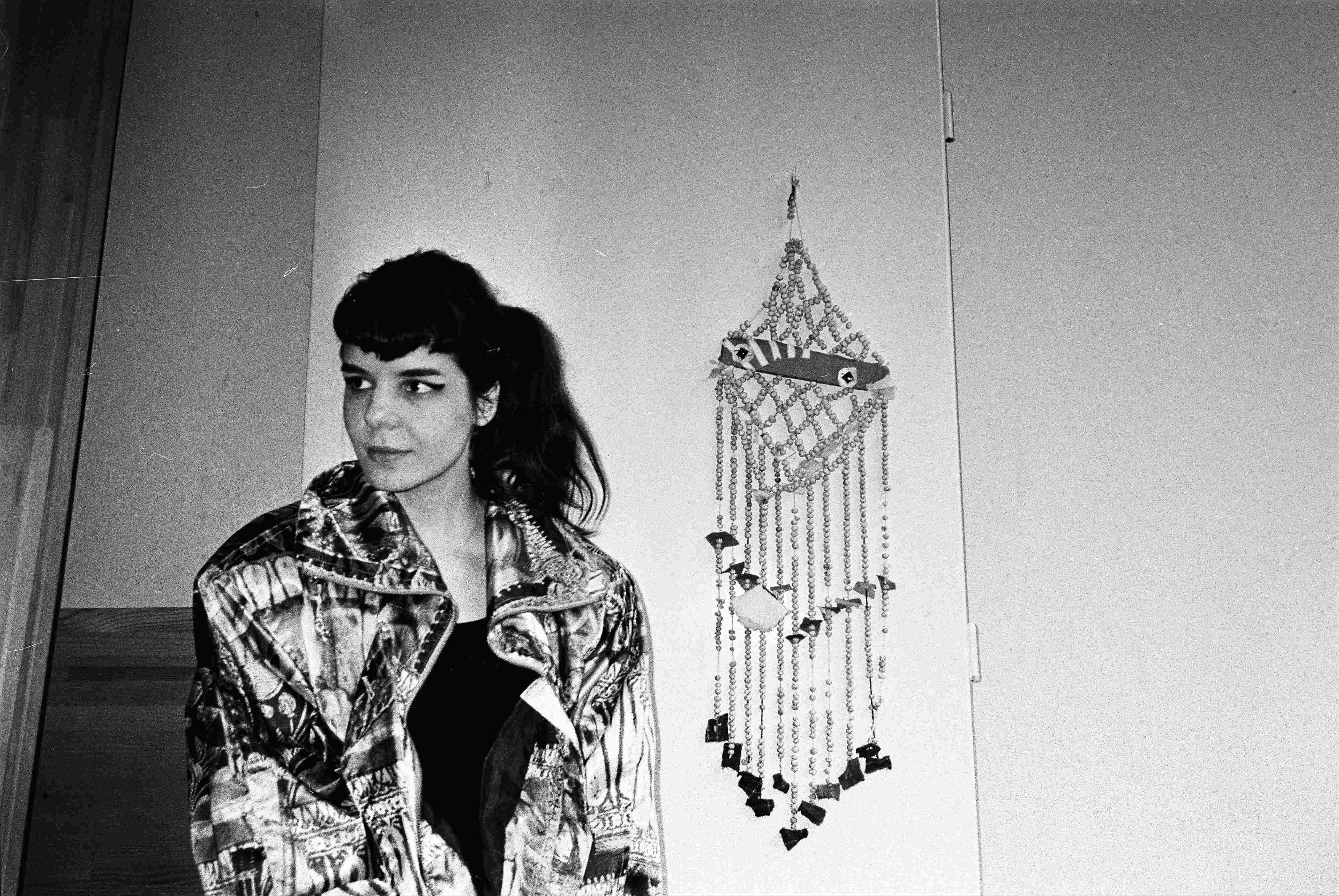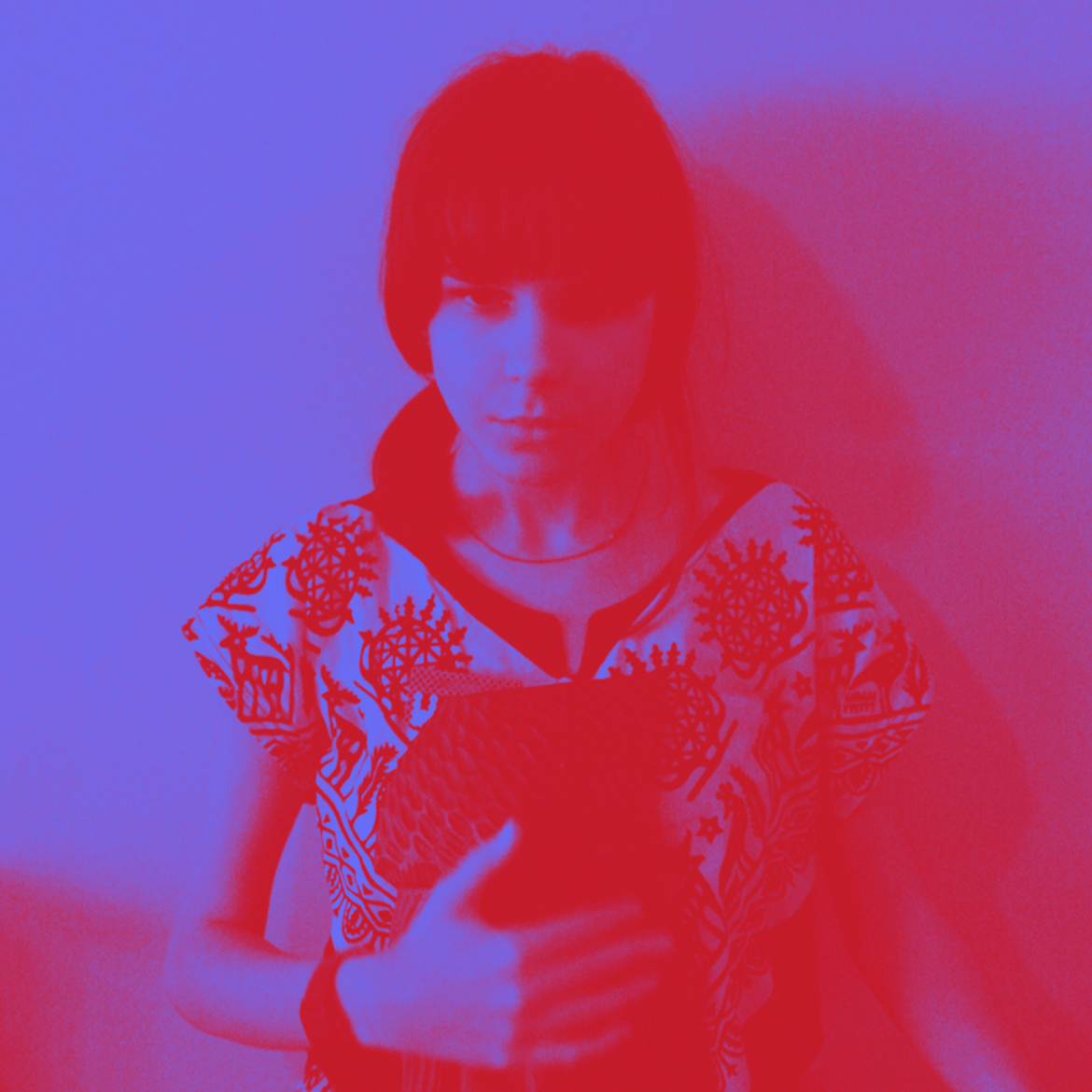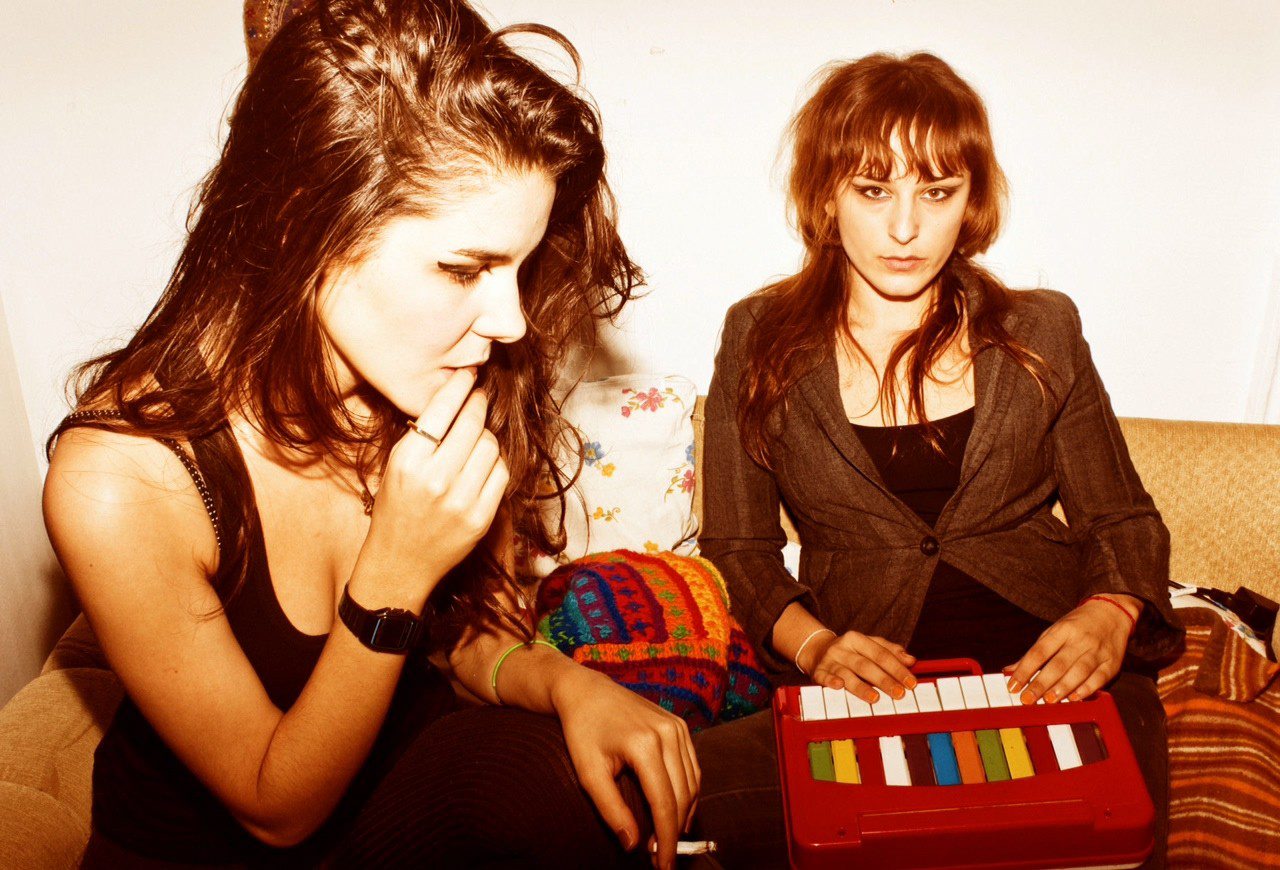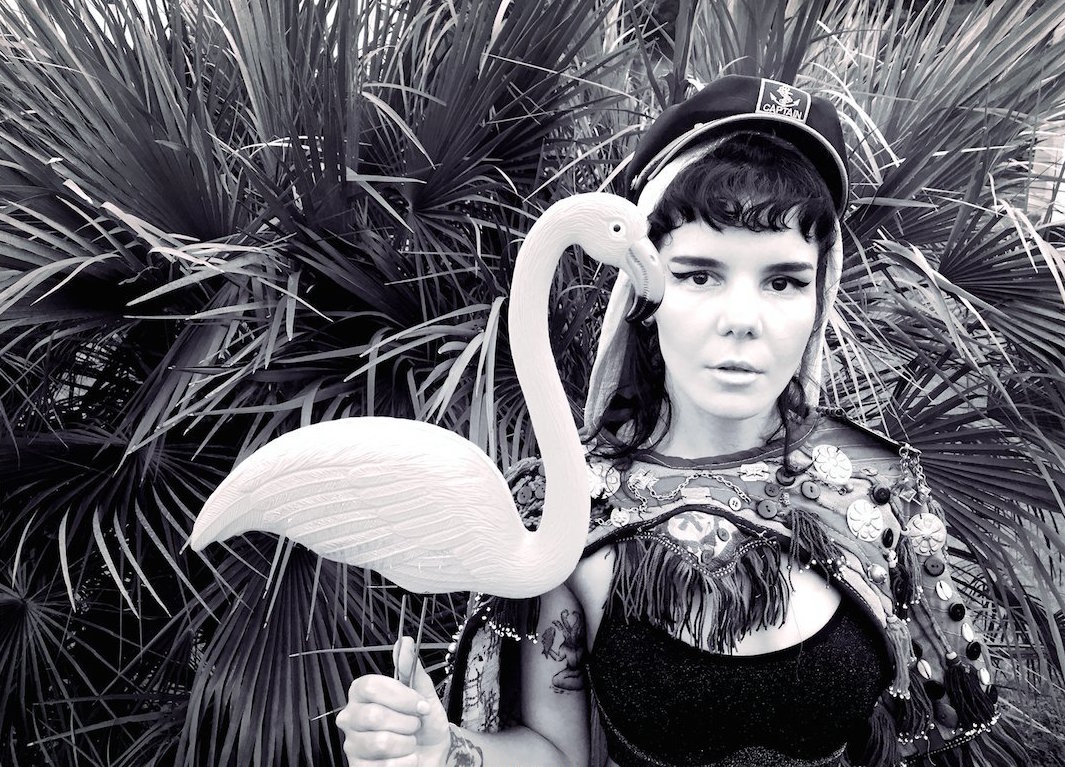Outta space, outta sight: Turkish rocker Gaye Su Akyol gives us the lowdown on her new album
Outer-space, dreams, holograms. My questions about the Istanbul music scene seemed rather mundane when, early in our conversation, the singer-songwriter Gaye Su Akyol ventured into these three phenomena she considers to be part of the ‘unknown’ – or, rather, possibilities that may act as windows into the unknown, a consistent theme in her art. ‘My interests lie, first and foremost, in the possibilities and explanations people generate to confront uncertainty,’ Akyol said, ‘because we truly are living in a great unknown, and I’m drawn to any sort of idea that can take that on. But this doesn’t mean I’m going to accept one idea as the only valid explanation; I’d much rather use it to dream up other possibilities.’
Akyol confronted the unknown on her 2014 debut, Develerle Yaşıyorum (I’m Living with Camels), with a promise that soon became her de facto catchphrase, and which was repeated on the record’s title track, O Uzaya Gidilecek (We’re Going to Get to Outer-Space). Two years later, Akyol is on a new journey, to the ‘Empire of Holograms’, the English translation of her second full-length effort and international debut, Hologram İmparatorluğu. Indeed, when she and I got together to talk about the album, it became clear that Akyol was just as comfortable discussing subjects like Turkish politics, the Istanbul meyhane (tavern) scene, and even theoretical physics.

This is not surprising, given Akyol’s diverse track record. The young musician first gained the attention of Turkey’s creatives as a visual artist, her father (Muzaffer Akyol) being a renowned painter. A lifelong enthusiast of the humanities, Akyol chose to study cultural anthropology in university over music or the fine arts because she wanted her work to address the ways in which individuals – and different cultures – confronted life’s challenges. Akyol also said she had never wanted to receive formal musical or artistic training. ‘I take a very raw, instinctive approach to my art’, Akyol explained. ‘I believe that those who have [formally] studied the arts can produce amazing work, but I wanted to stick to the more personal, instinctive stuff – the sort of discoveries one makes through introspection and embarking on a journey by oneself.’ And, in the artist’s opinion, ‘that’s something you need to “study” your whole life’.
After university, however, Akyol devoted herself full-time to painting and songwriting, simultaneously exhibiting her work around the world and playing in the bands Toz ve Toz and Seni Görmem İmkansız. And though she released her debut record in 2014 as a solo artist, she rarely takes the stage without Bubituzak, a trio of masked musicians that enjoys a dominant presence in Turkey’s alternative rock scene. Add to this eclectic academic and artistic background her musical influences – from Nick Cave to Anatolian folk rocker Selda Bağcan and classical Turkish music icon Müzeyyen Senar – and the result is a blend of genres unlike any other in contemporary Turkish pop music.

When Gaye met Patti
At first listen, Akyol’s ornate lyrics and measured, melodic singing are reminiscent of Senar and other mid-20th century classical Turkish singers; one may even get the sense that Akyol plucked her songs off some dusty, forgotten record. Further listening, however, reveals her significant departures from the confines of classical Turkish music. Though elaborate, her lyrics can be bitingly funny and even political. Kendimin Efendisiyim Ben (I Am My Own Master), a track on her new album, reads like a manifesto: I am my own master / It’s up to me whether I make love or war / The gains and losses are mine alone. Another track, Nargile (Water-Pipe), offers a straightforward indictment of Turkey’s current regime: You’ve built your mansion / Worshipped its plaster / Sold us out to strangers / You have your palace / But it’s just four empty walls.
Present alongside the staple instruments of classical Turkish music such as violins, the oud, and the kanun (zither) are psychedelic electric bass lines courtesy Bubituzak, particularly on Develerle Yaşıyorum. In addition, the rock trio’s colourful, ever-changing array of masks (Akyol said its masks were a spontaneous purchase before a show, but ended up becoming concert fixtures) are a far cry from the formal, seated musical ensembles that traditionally back classical singers. Still, the influence of classical music on Akyol’s sound is undeniable, particularly in the rich notes produced by traditional stringed instruments in the first measures of Hologram, the album’s opener. The themes of intense love and loss on tracks like Eski Tüfek (An Old Hand) and Anlasana Sana Aşığım (Can’t You See that I’m in Love with You?), too, are familiar to seasoned classical Turkish music listeners.

With Tuğçe Şenoğul, the other half of the Seni Görmem İmkansız duo
Though such comparisons to well-defined genres like classical Turkish and psychedelic rock may be convenient for critics and casual listeners, diligent fans find Akyol’s sound frustratingly difficult to label. Akyol delights in traversing the boundaries of genre and producing songs that evade straightforward classification, though she’s careful to avoid embracing even the lack of a label as a musical identity. ‘Labels don’t benefit music – they benefit the music industry’, Akyol told me. ‘That’s why I’ve always said that I don’t pay them any attention. People have room to come up with their own opinions of my music because I personally never set out to fill a particular mould. I think my music will come to define itself.’ Pausing for a moment, she added: ‘Do we put artists like Jimi Hendrix into a single category? No – we just call it “Jimi Hendrix’s music”.’
World politics have become so absurd that sometimes I find myself wondering if any of this can actually be real, or if it’s just a bizarre alternate reality
Unlike Akyol, many Turkish listeners are not content to forego labels entirely. Midway through our conversation, I asked Akyol to recount some of the funniest reactions to her music that she had encountered online. She said that one song in particular, the satirical Pink Floyd’un Dediği Gibi (What Pink Floyd Said), had drawn the ire of the online community. ‘I’ve seen so many absurd comments and interpretations; people took that song so seriously’, Akyol remarked, laughing. ‘They went so far as to ask my why I would “do such a thing” to Pink Floyd. One person wrote that [Syd Barrett] must be rolling in his grave, because I referenced him in that song.’
Despite the occasional perplexed fan or music critic, Akyol’s unusual sound and theatrical live performances – replete with glittering, retro sci-fi inspired costumes and Akyol’s constant glass of rakı – have garnered domestic and international attention. In the past year, she has performed at both the Netherlands’ Le Guess Who? Festival and Denmark’s Roskilde, in lineups that also included LCD Soundsystem, Neil Young, and Deerhunter. Even with a growing list of international festival appearances, though, Akyol says her music remains firmly rooted in her homeland and native tongue. Akyol’s performance at the latter festival in late June of this year came on the heels of the terrorist attack in the Atatürk International Airport, in which 45 people died. ‘It was a strange time to be playing at a festival – there had just been a massacre at the airport’, Akyol recounted. ‘We flew out of that same airport just a few hours after the attack, as soon as it had reopened. We stayed up all night, completely distraught [over the attacks] and anxious about whether we’d even be able to play.’ Though Akyol and her band did eventually play, they told their audience that they were still in mourning. ‘But I will say that seeing so many different kinds of people, people from all over the world, celebrating music, raised our spirits.’

Say hello to her little friend
Unsurprisingly, her second album picks up on many of the threads introduced in Develerle Yaşıyorum: love, companionship, and human connections in the vast expanse of the ‘unknown’. Musically, it expands on the classical Turkish instrumentation first sampled on her debut LP, without sacrificing any of the throbbing psychedelic drum and bass lines that have helped make her a darling of Istanbul’s alternative rock scene; and, as with the phrase ‘I’m Living with Camels’, the ‘Empire of Holograms’ is a metaphor. ‘My point of departure for the album is a possibility that theoretical physicists have been debating for some time now – the notion that [the whole universe] might be a giant hologram’, Akyol remarked, referencing the ‘holographic principle’. ‘I’ve always loved science fiction, and I’ve spent a lot of time thinking about ideas like this.’
Akyol’s Empire of Holograms isn’t limited to science fiction and physics, though; she said that it was also a metaphor for current events, irrespective of whether or not the holographic principle is scientifically valid. ‘It seems to me that, both on an individual and societal level, people are acting less like themselves and more like versions or imitations of themselves’, she opined. ‘World politics have become so absurd that sometimes I find myself wondering if any of this can actually be real, or if it’s just a bizarre alternate reality.’
Balancing painting, songwriting, and a soon-to-be-busy tour schedule (not to mention keeping track of Turkey’s political landscape), Akyol said she took comfort in long, honest conversations with close friends and family, preferably in Istanbul’s famous meyhanes over meze and cold glasses of rakı.‘There are a few meyhanes my friends an I frequent’, Akyol said. ‘Yakup [in Istanbul’s historic Asmalımescit neighbourhood] is one of our favourites; we rarely drink rakı at someone’s house. There’s something special about going to a place that has played host to hundreds of thousands of conversations like ours.’ Akyol went on to say that one of the songs on her new record, Mona Lisa, sprung to life at Yakup over the course of one such rakı-fuelled discussion. Akyol’s father had written the lyrics earlier on, and began reading them to his daughter. ‘I came up with the melody right there and then, [and] sang it back to him, and he loved it’, she remembered. ‘I promised him the song would be on my new album. That certainly wasn’t the first time [he] read one of his poems to me at a meyhane. We’ve sketched pictures there together [and] inspired one another.’ After another pause, she remarked, ‘I guess that’s how I’ve been going about things for some time now’.
